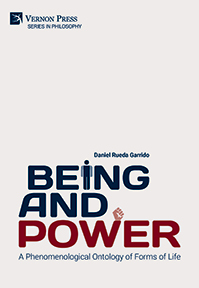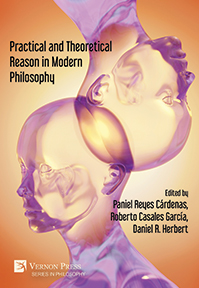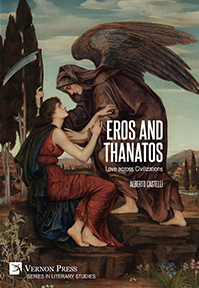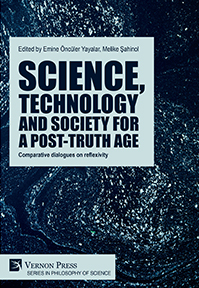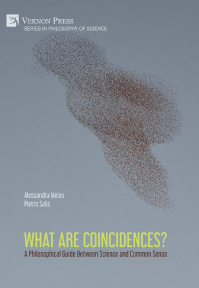Search
Browse
by Publication status
by Subject
Anthropology (26) Art (125) Business and Finance (27) Cognitive Science and Psychology (54) Communication and Journalism (46) Economics (63) Education (69) History (150) Human Geography (22) Interdisciplinary (42) Language and Linguistics (130) Law (16) Music Studies (19) Philosophy (158) Political Science and International Relations (103) Sociology (310) Statistics and Quantitative Methods (20)by Series
Series in Literary Studies (65) Series in Philosophy (59) Series in Education (53) Series in Sociology (45) Bridging Languages and Scholarship (32) Series in Politics (32) Series in World History (32) Series in Language and Linguistics (25) Cognitive Science and Psychology (20) Series in American History (20) Series in Philosophy of Religion (20) Series in Art (19) Critical Perspectives on Social Science (17) Series in Cinema and Culture (16) Curating and Interpreting Culture (15) Series in Critical Media Studies (14) Series on the History of Art (14) Economics (14) Series in Anthropology (13) Series in Business and Finance (13) Series in Music (12) Series in Communication (9) Series in Performing Arts (9) Philosophy of Personalism (8) Series in Law (8) Series in Economic Methodology (7) Series on Climate Change and Society (7) Women's Studies (7) Classics in Economics (6) Series in Economic Development (6) Philosophy of Forgiveness (5) Series in Built Environment (5) Series in Economic History (5) Series in Social Equality and Justice (5) Series in Philosophy of Science (4) Series on the History of Science (4) Serie En Estudios Literarios (3) Serie en Sociología (3) Series in Contemporary History (3) Series in Creative Writing Studies (3) Series in Design (3) The Interdisciplinary Built Environment (3) Serie en Comunicación y Medios (2) Serie en Historia (2) Serie en Música (2) Series in Heritage Studies (2) Series in Innovation Studies (2) Series in Philosophy of Race (2) Serie en Ciencias Políticas (1) Serie en Entorno Construido (1) Serie en Estudios Culturales (1) Serie en Filosofía (1) Serie en Filosofía de la Ciencia (1) Series in Classical Studies (1) Series in Economics of Technological Change (1) Series in Urban Studies (1)by Language
English Spanishby Author
Browsing with filters

Being and Power. A Phenomenological Ontology of Forms of Life
January 2024 / ISBN: 978-1-64889-817-4Availability: In stock
146pp. ¦ $55 £44 €51
Why do we act as we do? Why do we assume that the way of being and behaving in our community is right, good, and common sense? Why do we fail to understand those who are, act, and feel differently? These are some of the questions that this book raises and attempts to answer. This ontology is rooted in the phenomenological tradition but with the innovation of taking the "form of life" as the central ontological unit. We are our form of life, but, as a transcendental-immanent reality, this is not directly equivalent to culture or society; it is rather the "political" realisation in the world of an image of the human being shared by a given community. This overcomes the traditional dualities of individual and society, consciousness and body, facticity and freedom, actuality and possibility. The subject is a subject because it identifies with that image, which is equivalent to the intersubjective consciousness of how one should act and be in the world. This gives rise to multiple forms of life. The latter implies a certain power to be who one wants to be. In this way, the book is an invitation to self-examination, for if our form of life is voluntary (i.e., capitalism), it shatters the illusion that one cannot live in any other way, and places us before the anguished but inevitable task of justifying its adoption or resorting to its abandonment. The book offers a dynamic analysis of human existence as the actualisation of a form of life that is, at the same time, the exercise of a certain power over those who seek to live otherwise, especially when that form is institutionalised by a government as the essence of the national or transnational community.
Practical and Theoretical Reason in Modern Philosophy
Edited by
Paniel Reyes Cárdenas, Oblate School of Theology; The University of Sheffield et al.
Availability: In stock
210pp. ¦ $103 £82 €96
The present collection aims to examine this fertile period in the history of philosophy concerning its significance for understanding the relation between theoretical and practical reason, or, relatedly, facts and values. Our contributors have explored different important ways in which both the shortcomings and insights of the theoretical/practical distinction have shaped Western philosophy.
Eros and Thanatos. Love across Civilizations
Alberto Castelli, Hainan University, China
Availability: In stock
254pp. ¦ $82 £65 €76
'Eros and Thanatos' is about the deadly nature of love. It is remarkable that literary critics have paid so little attention to the combination between love and death in literature. This book seeks to address this significant scholarly lacuna by exploring key literary texts of the last two hundred years as exemplary of a consistent tendency toward love and death. Its emphasis on singular characters and close readings suggests the spectrum of an arbitrary dichotomy never fully resolved. The existential discussion triggered by each plot is so intense that the erotic and the merely sexual seem inappropriate. Indeed, each writer chose to reduce it to the setting and background of a story that takes place elsewhere. With this in mind, the author intends to reflect love’s paradoxical nature. If love is triggered by beauty, beauty can be immoral and love must die to preserve the illusion of beauty.
Science, technology and society for a post-truth age: Comparative dialogues on reflexivity
Edited by
Emine Onculer Yayalar
and Melike Sahinol
Availability: In stock
338pp. ¦ $111 £89 €103
In an era shaped by misinformation, conspiracy theories, and anti-science movements, Science and Technology Studies / Science, Technology and Society (STS) provides a lighthouse of insight and interdisciplinary research. This volume, 'Science, technology and society for a post-truth age: Comparative dialogues on reflexivity,' embarks on a transformative journey through the interdependencies of science, technology, and society, offering vital perspectives and new insights on these challenging topics. This book, written by scholars in the field, reshapes post-truth discourse through STS and positions STS as a central force in addressing the post-truth crisis. It presents a compelling contribution that anchors STS at the heart of contemporary debates about truth and knowledge. 'Science, technology and society for a post-truth age: Comparative dialogues on reflexivity' is a contemporary and thought-provoking exploration of the evolving relationship between knowledge, truth, and society. It makes the case that STS is a catalyst for reshaping our understanding of truth in an age characterised by scepticism and uncertainty.
What are Coincidences? A Philosophical Guide Between Science and Common Sense
Alessandra Melas, University of Sassari, Italy
and Pietro Salis, University of Cagliari, Italy
Availability: In stock
90pp. ¦ $46 £38 €42
It is a common opinion that chance events cannot be understood in causal terms. Conversely, according to a causal view of chance, intersections between independent causal chains originate accidental events, called “coincidences”. Firstly, this book explores this causal conception of chance and tries to shed new light on it. Such a view has been defended by authors like Antoine Augustine Cournot and Jacques Monod. Second, a relevant alternative is provided by those accounts that, instead of acknowledging an intersection among causal lines, claim to track coincidences back to some common cause. Third, starting from Herbert Hart and Anthony Honoré’s view of coincidences (Causation in the Law. Clarendon Press, Oxford, 1959). This book provides a more detailed account of coincidences, according to which coincidental events are hybrids constituted by ontic (physical) components, which is the intersection between independent causal chains, plus epistemic aspects, including but not limited to, access to information, expectations, relevance, significance, desires, which in turn are psychological aspects. The main target of the present work is to show that the epistemic aspects of coincidences are, together with the independence between the intersecting causal chains, a constitutive part of coincidental phenomena. This book aims to introduce and discuss recent work in psychology concerning one’s judgment about coincidences; this data offers further materials and reasons to reflect upon our understanding of coincidences and to refine our hybrid conception.

